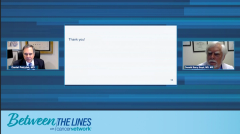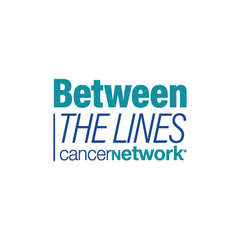
Considerations for Checkpoint Inhibitor Maintenance Therapy in Urothelial Carcinoma
Drs Donald Barry Boyd and Daniel Petrylak consider the advantages and disadvantages of checkpoint inhibitor maintenance therapy in advanced urothelial carcinoma.
Daniel Petrylak, MD: So Barry I think that we’re seeing some very interesting data. We know that we’re getting a survival median up from the start of first-line therapy of about 26, 27 months. I think that there are certainly some advantages to giving this maintenance therapy in this fashion. One of the advantages of this is that you’re not having patients drop out, potentially being lost to follow up, and not receiving their second-line therapy, as we saw in that original slide. Remember, we call this line 1.5. However, the question, of course, is are we subjecting some patients to immune toxicities when they would not have received it? And then how can we better find out who those patients are who relapse? I think that that’s really a crucial issue. Generally, checkpoint therapy works better in nodal disease than in visceral disease. So the question, of course, is are you going to get the same benefit? I think this is a huge advantage. By giving it earlier, you don’t have those people drop out. Barry, your thoughts?
Donald Barry Boyd, MD, MS: I agree. The other thing is Dan, I think we’re underestimating. Despite the high level of toxicity, these are really for the most part minor toxicities. Well tolerated. A few of them required either steroids or discontinuation. But it’s interesting, when you look at the across-the-board immune therapy in different settings, this is 1 where amylase and lipase elevations was high. In other ones you see transaminase elevations that are high. So it’s going to vary from study to study, and it may be related to the population. But the elderly people did well, as well as those under 65 years old. I think this is 1 of the therapies that is generally pretty well tolerated with older patients. We have people in their 80s and 90s who get checkpoint inhibitors. One of the big questions is going to be within this group who go on to maintenance avelumab, how many will have extended ongoing responses? That’s going to be another important point, because as I recall, 1 of the people within this group had been on study for, if I’m not mistaken, 3 years, 159 weeks. That’s sort of what we’ve seen with lung and some of the other treatments. We’re seeing extended potential long-term remissions in patients who get this. We can’t discount how important that is.
Transcript edited for clarity.
Newsletter
Stay up to date on recent advances in the multidisciplinary approach to cancer.



































